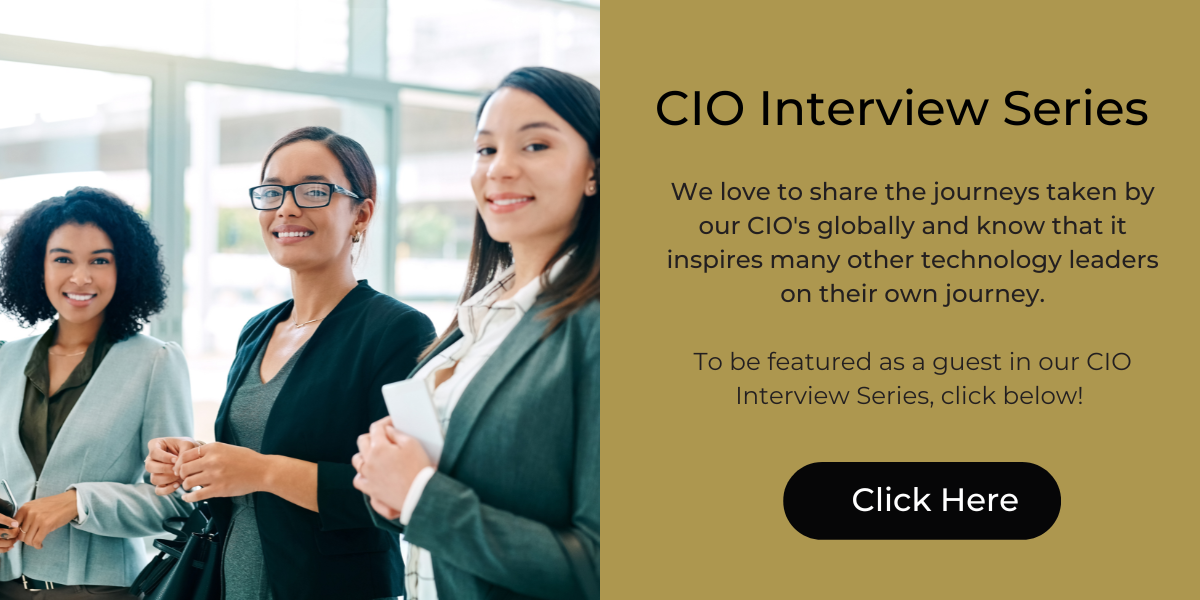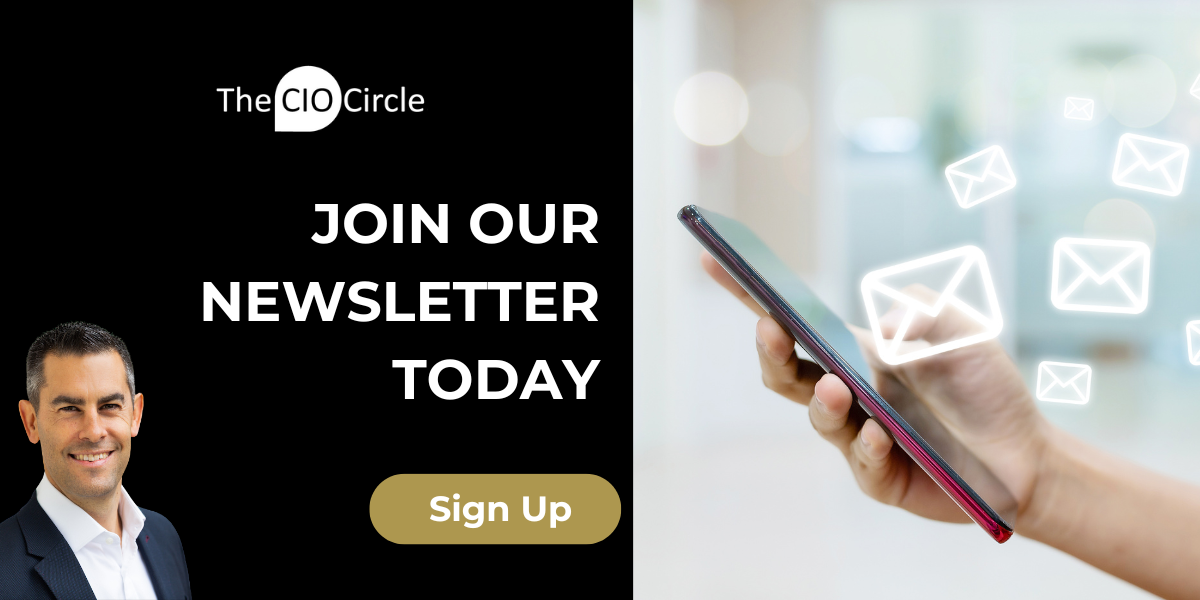JASON BURNS
Chief Information Officer at Tilson
Can you please provide a little introduction about yourself
What has your journey to your position been like? What path have you taken?
If there exists a textbook journey to CIO, I haven’t had it. Having grown up in the utility underground construction space, my father helped run a company based in the mid-Atlantic that provided dark fiber/frame relay for AT&T in the early 90’s as well as water, gas and electrical work for utilities. At my first job when I was 13yrs old, I worked as a laborer for a local concrete company. Over the years as the company transitioned from union and non-union work, I had the opportunity to try out several trades, my favorite being an equipment operator working with excavators and backhoes. I learned estimating and scheduling, resource management and back-office operations through my late teens into my early 20’s. In parallel, I was introduced to programming early in my life with learning Fortran at the time I was learning to write and read. My general computing knowledge grew as a hobby and passion in line with the evolution of technology learning it as it came to market. As I graduated high school, I found college was not a place for me yet and worked several jobs. I eventually returned to school at night and obtained a degree in Accounting and Finance from University Maryland, University College.
Out of college, I started working for Turner Construction in their New Jersey financial hub where I was exposed to a brand-new ERP installation. My career started on two paths, one for financial accounting and another for systems and controls. I had the opportunity a few years later to work for a startup-up General Contractor in New York City to run their technology department. As I continued to acquire and hone more technical skills, my focus honed as well. I could see and feel the anti-technology culture of construction and that without a technology facilitator, construction itself would fall behind. I made it a personal mission to create clear paths for technology adoption in the industry. My own predilection to construction and technology got me started. But it was that skill coupled with the strategic vision and drive to have lasting impact on the industry that led to my success in follow-on positions and rise to recognized thought leader and CIO.
In the midst of the pandemic, I had the great privilege to join Tilson. I found a company in a state of massive growth looking for a CIO with the same construction technology vision and drive who could propel its strategic path. Being part of an integrated leadership team with a clear purpose to build an incredible company capable of building America’s information infrastructure is the opportunity of a lifetime.
Has it always been your vision to reach the position you’re at? Was your current role part of your vision to become a tech leader?
Have you had a role model or mentor that has helped you on your journey?
Yes! I have had several role models and mentors over the years and I’m delighted to give them credit and my public gratitude here. For role models, I had the privilege of working for Tom Garcia and Tony Breu, both in my early career, who taught me how to actively listen. They showed me that leaders stand up for their people when times are tough and behind them the rest of the time. Both also encouraged me to find a path that matched my skills. This allowed me to transition to Technology Leadership. Additionally, my COO and President in my last positions, John Alicandri and James Mckenna, both taught me valuable lessons in questioning and challenging gross generalities while not blindly accepting feedback.
My mentor, Isaac Sacolick, and I met at a conference early in my technology career. Isaac was a CIO for a Fortune 500 at the time. He took me under his wing and has been by my side for more than 13 years now. In fact, Isaac has become a close friend and confidant to me, a place to test thoughts and issues and he is able to give me honest, even harsh, feedback that has guided every step of my career since our first meeting. I would say that everyone needs a mentor in their lives, someone who can help them see the way and expose blind spots as well as be a safe haven to go to guide you through failures and celebrate the successes. I encourage anyone to find that one person in your professional life that can be there for you, someone that will take your call any day or time and meet when needed, someone as invested in you as you are in yourself.
How do you see the role of the technology leader evolving over the next 5 years?
What skills do you think leaders of the future will need in order to thrive?
How do you keep current with new skills, technologies and personal development?
What do you see as the next leap in technology that will impact your business or industry in particular?
Construction has always been plagued by lagging technology adoption since it has largely been based on project management and not on actual construction. This has been driven by both cultural roadblocks and the inability to bring stable and cost-effective computing power to the worksite. The increased access to high-speed bandwidth on the back of 5G will drive field technology dramatically. We have already accomplished miniaturizing the computing equipment needed, which reduces the cost burden, but advancements in wireless technology will allow the industry to harness the demand for large data sources required in construction plans, imagining, BIM and AI through increased cheap and reliable bandwidth. This change equates to no longer having the need for large computing systems locally as well as the requirement for access to a high-speed internet line within Wi-Fi range of a the workforce devices.
With these changes the data can be streamed in real-time via cellular and as a result, we will see more robotics, automation, exoskeleton and drone use to assist in construction activities. For instance, we are now seeing remote-controlled Excavators and other heavy equipment being run from states away wirelessly. This one small example reduces downtime for operators waiting for the ability to perform work and helps answer the lack of skilled workforce allowing companies to perform tasks with greater efficiency and more safely with the onboard sensors that are giving construction personnel a wider field of perception and computer-assisted guidance. With all of this data capable of being used not only in the physical construction we will see companies taking the telemetric information and combining it with construction documents, geospatial data, geological data and work outputs over the next few years which will enable the industry to create and harness predictive analytics in a way never dreamed possible.
"Always be listening and learning, every day, every meeting and hone your skills at seeing what’s not there, not just what’s in front of you."
If you were mentoring a leader of the future, what advice or guidance would you give to help them on their way?
Is there anything in particular that you would still like to achieve in your career or what is the next step on your journey?
If you could change one thing in the world, what would it be?
Equitable access to technology skills training and affordable broadband. I am passionate about closing the digital divide where the threat to low-income families globally has become more severe and the pandemic alone has created an even larger divide. The Pew Research Group has led some excellent examination on the impact of this issue and I would encourage anyone interested in this topic to really understand the vast and consequential issues the growing digital divide has on our collective future.
This is a complicated issue that has several areas of concern in lower-income and rural households. I feel very fortunate to work in a company that is on a mission to deliver the infrastructure needed to bridge part of this gap.
A big thank you to Jason Burns from Tilson for sharing his journey to date.
If you would like to gain more perspective from Tech Leaders and CIOs you can read some of our other interviews here.
May 31, 2022


